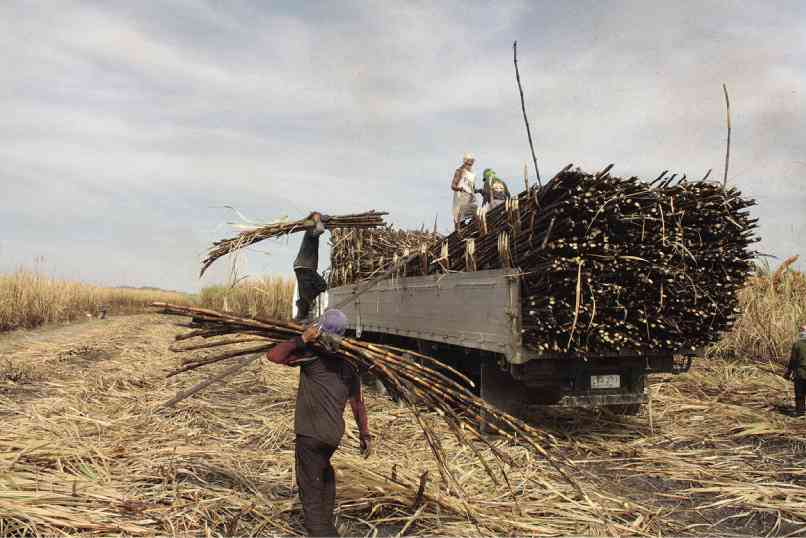Farmers in Danding haciendas want out of agribusiness venture
CITING the Hacienda Luisita case as precedent, some 1,200 farm workers now want out of a joint business scheme with businessman Eduardo “Danding” Cojuangco Jr. that exempted his 4,661-hectare landholding in Negros Occidental province from agrarian reform.
Cojuangco’s 12 haciendas, spanning two cities and seven towns in Negros Occidental, were exempted from distribution since 1998 through a joint agribusiness venture likened to the stock distribution scheme implemented in Hacienda Luisita in Tarlac province.
Hacienda Luisita, owned by Cojuangco’s relatives, had evaded land reform coverage since 1998 until the Supreme Court, in 2011, ordered its distribution after it junked the stock distribution scheme. Under this program, farmers received shares of stock instead of land as a way to implement the government’s Comprehensive Agrarian Reform Program (CARP).
Farmer leader Noel Magan, one of the farm workers who were issued certificates of land ownership oward (Cloa) but who were kept from actually owning the land, said their plight was similar to the experience of Hacienda Luisita farm workers.
“The Cojuangcos twisted the comprehensive agrarian reform program to keep control of their haciendas,” Magan said in Filipino.
The farm workers, who organized themselves under the ECJ CLOA Holders Association, petitioned Agrarian Reform Secretary Rafael Mariano on Aug. 13 to nullify the 16-year joint venture and to distribute the land to them.
They also asked President Duterte as chair of the Presidential Agrarian Reform Council (PARC) to revoke the joint venture. Mariano is vice chair of PARC, the highest policy-making body for CARP.
Magan said he and his fellow farmers each receive P833 monthly, or P10,000 annually under the joint venture ran by the South Negros Joint Venture Corp. (SNJVC).
“Their officials get rich, they can afford to buy cars and [airconditioning units] while we remain poor. When we get sick, we die without getting treatment. We subsist on dried fish or tomatoes,” he said.
The Inquirer tried but failed to reach any official of SNJVC for comment on Monday.
The 12 haciendas, which are planted with mango, durian, pili, banana and sugarcane, were placed under agrarian reform in 1998 when Cojuangco announced he would voluntarily transfer the property to the tillers under a joint venture.
Under the scheme, farmers holding titles get a 30-percent share while Cojuangco and other investors get 70 percent.
In 1999, then Agrarian Reform Secretary Horacio Morales Jr. provided the legal basis for the joint venture, through DAR Administrative Order No. 2 or the Joint Economic Enterprise Program.
According to Task Force Mapalad president Jose Rodito Angeles, AO No. 2 supposedly allowed farm workers to withdraw from the joint venture in case of a “serious breach” of the agreement.
But he said they discovered that documents submitted to the Securities and Exchange Commission showed that SNJVC’s bylaws did not provide farm workers an exit option.
“With Cojuangco himself and at least seven allies in the board, the farm workers are trapped in the venture and won’t have any chance to move for the amendment or repeal any portion of the bylaws even if these are working against their interest,” Angeles said.
